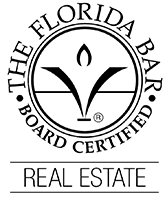Tampa St. Petersburg Probate Attorney
Welcome to probate attorney James W. Martin, P.A., who practices wills, trusts and probate law in Tampa, St. Petersburg, and surrounding counties and has served on The Florida Bar Probate Rules Committee.
Pinellas County Probate Court, Clerk, and Attorneys
Pinellas County is home to one of the highest volume probate courts in Florida with over 10,000 probate cases filed with the probate clerk every year and just two probate judges to adjudicate all those cases. In fact, over 5,000 probate cases were filed in Pinellas County Circuit Court Probate Division between January 1, 2023 and May 15, 2023.
This requires the Pinellas County probate attorney to have the knowledge and skill to deal with the complexities of probate in a probate court system that has a very high caseload. The efficiencies of efiling technologies help the probate court, clerk, judges, and lawyers keep up with this demand.
As a Pinellas County probate lawyer, James W. Martin was the first St. Petersburg probate attorney to efile probate cases during the one year pilot phase of efiling in 2011 – 2012. And he served six years on the Probate Rules Committee of The Florida Bar. He has twice served as chair of the St. Petersburg Bar Association Probate Law Section.
Florida Probate and Estate FAQ
The underlying legal concepts in Florida wills, trusts, and probate estates arose hundreds of years ago in England, long before Florida became a state. Those concepts still apply today in Florida probate cases.
2.01 Common law and certain statutes declared in force.—The common and statute laws of England which are of a general and not a local nature, with the exception hereinafter mentioned, down to the 4th day of July, 1776, are declared to be of force in this state; provided, the said statutes and common law be not inconsistent with the Constitution and laws of the United States and the acts of the Legislature of this state.
Florida Statutes Section 2.01 (2022)
This can make it difficult to understand the documents and terminology of Florida probate estates and trusts. So, St. Petersburg Pinellas County Florida probate and estate planning attorney James W. Martin has written Florida Probate and Estate FAQ that provides frequently asked questions and answers to explain concepts and words used in Florida probate proceedings, wills, trusts, and estate planning.
Articles on Probate and Estate Planning
St. Petersburg probate estate attorney James W. Martin has also written articles published by the American Law Institute and The Florida Bar regarding probate and estate planning, which are available as downloads on the Attorney Profile page for James W. Martin.
Florida Probate and Estate Blog
James W. Martin’s blog has many tips and comments regarding Florida probate and trust estates. They are found under the topic Probate Wills Trusts Estates, and can be further refined by clicking on a Tag. All blog entries can be seen in the Archives.
Probate and Estate Client Questionnaire
The Questionnaires page includes the Probate and Estate Questionnaire and the Estate Plan Client Questionnaire for clients and potential clients to complete and send to James W. Martin with information regarding their probate and estate planning matters.
Real Estate in Probate
When Florida residents create their estate plans they consider what happens to their real estate, so real estate in probate is an important legal practice area for probate attorney James W. Martin.
Florida Estate Law
Estate planning for Florida residents must be based on Florida law because each state has unique probate laws. Probate in Florida differs from probate in New York. Trusts in Florida differ from trusts in Ohio. There are certainly similarities among state probate and trust laws, but in the end, each state differs. That’s why it’s important to have a Florida attorney assist in estate planning for Florida residents.
Estate Documents
Estate planning considers three things: your family, your assets, and your desires. Estate planning documents are drafted to accomplish your plan based on existing laws and various situations. These documents may include wills, trusts, powers of attorney, declarations of preneed guardian, designations of health care surrogates, and living wills. Estate planning attorneys are taught and trained to draft these documents based on their clients’ desires.
Probate Process
When a Florida resident dies, some property passes automatically to beneficiaries and some property passes through probate. Estate planning can reduce the need for probate, but when probate is needed there are several steps involved, and each step must comply with court rules, as well as state statutes. Probate attorneys are educated and trained to deal with these requirements.
In a typical probate estate, there are beneficiaries, creditors, taxing authorities, and a personal representative. Each one should have its own attorney because there is no such thing in Florida as “the estate lawyer”. The attorney for the personal representative represents only the personal representative and does not represent the beneficiaries or the creditors or even the “estate”.
The Florida Probate Code (Florida Statutes Section 733.6171) governs compensation of attorneys for personal representatives. Here are some things to keep in mind: (a) there is not a mandatory statutory attorney fee for estate administration; (b) the attorney fee is not required to be based on the size of the estate; (c) the percentage fee provided in the Probate Code may not be appropriate in all estate administrations; (d) the attorney fee is subject to negotiation between the personal representative and the attorney; and (e) the selection of the attorney is made at the discretion of the personal representative, who is not required to select the attorney who prepared the will.
Revocable Living Trust
When a Florida resident creates a revocable living trust, it means the resident signed a trust agreement during his or her lifetime and funded it with real estate, stocks, LLCs, bonds, cash, or other assets. If properly created and funded, the assets in the living trust avoid probate when the Florida resident dies. However, probate might still be required for other assets, or to clear claims of creditors. In addition, some assets, such as the homestead, retirement accounts, life insurance, annuities, and motor vehicles, are not transferred to a living trust because doing so might cause legal issues. Drafting a living trust agreement is one of the documents that estate planning attorneys often prepare along with a last will and testament.
Contact
If you have the need for a Florida wills, trusts, and probate attorney, you may use the contact form below or call James W. Martin directly at 727-821-0904 or email him at jim@jamesmartinpa.com for a free initial consultation.
The text on this page was written by James W. Martin, Esq. and was last updated on September 14, 2024.








